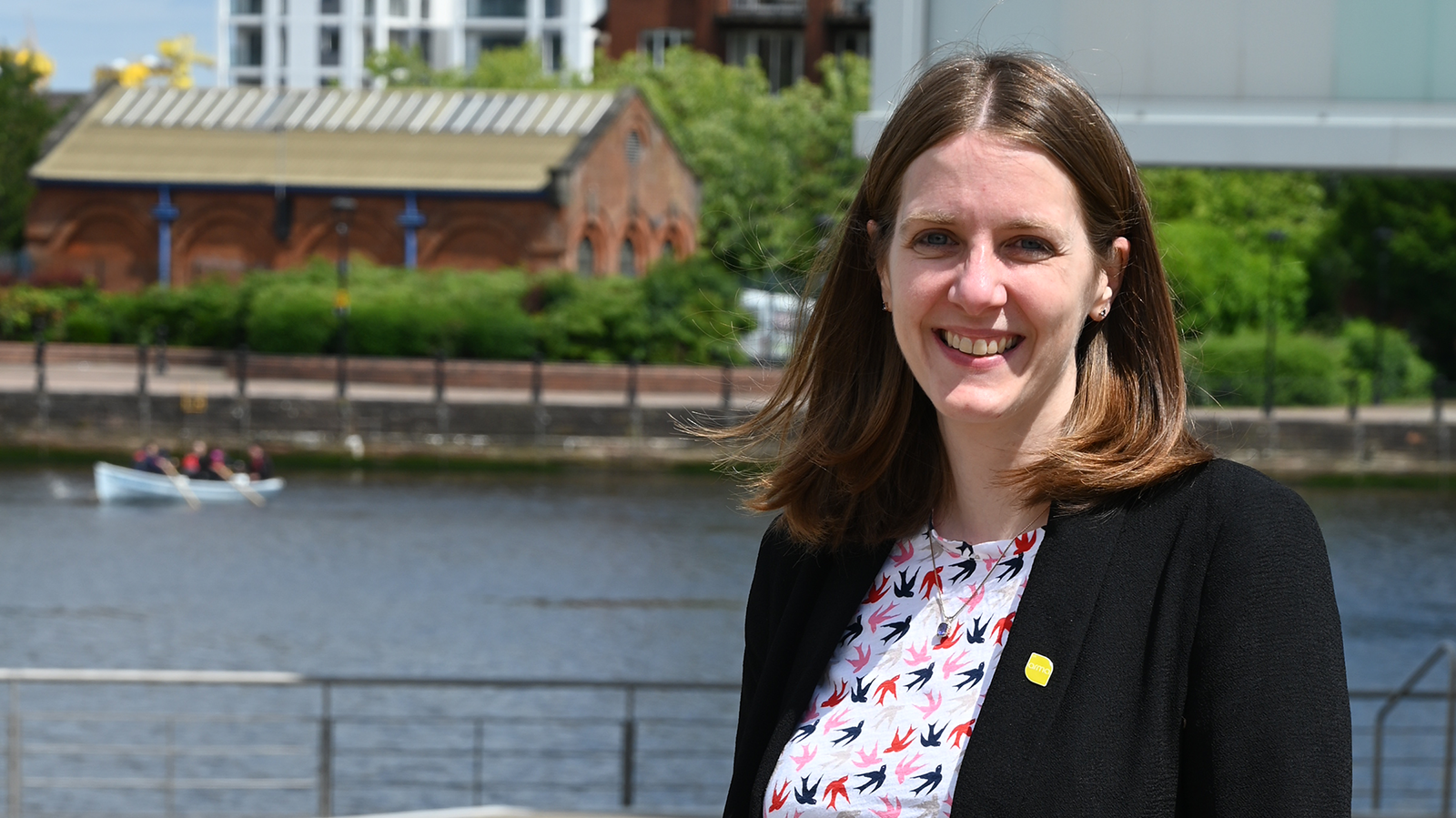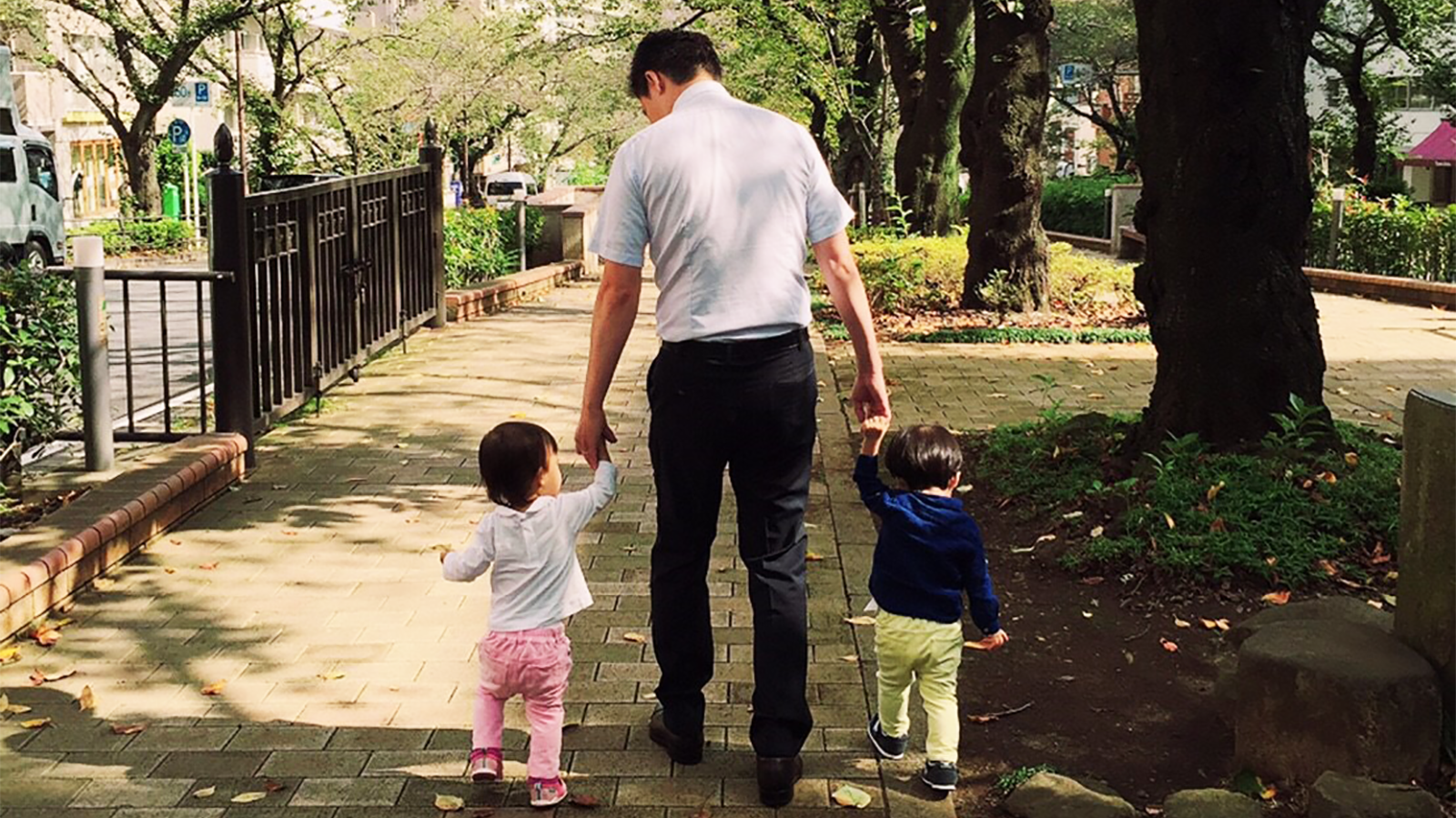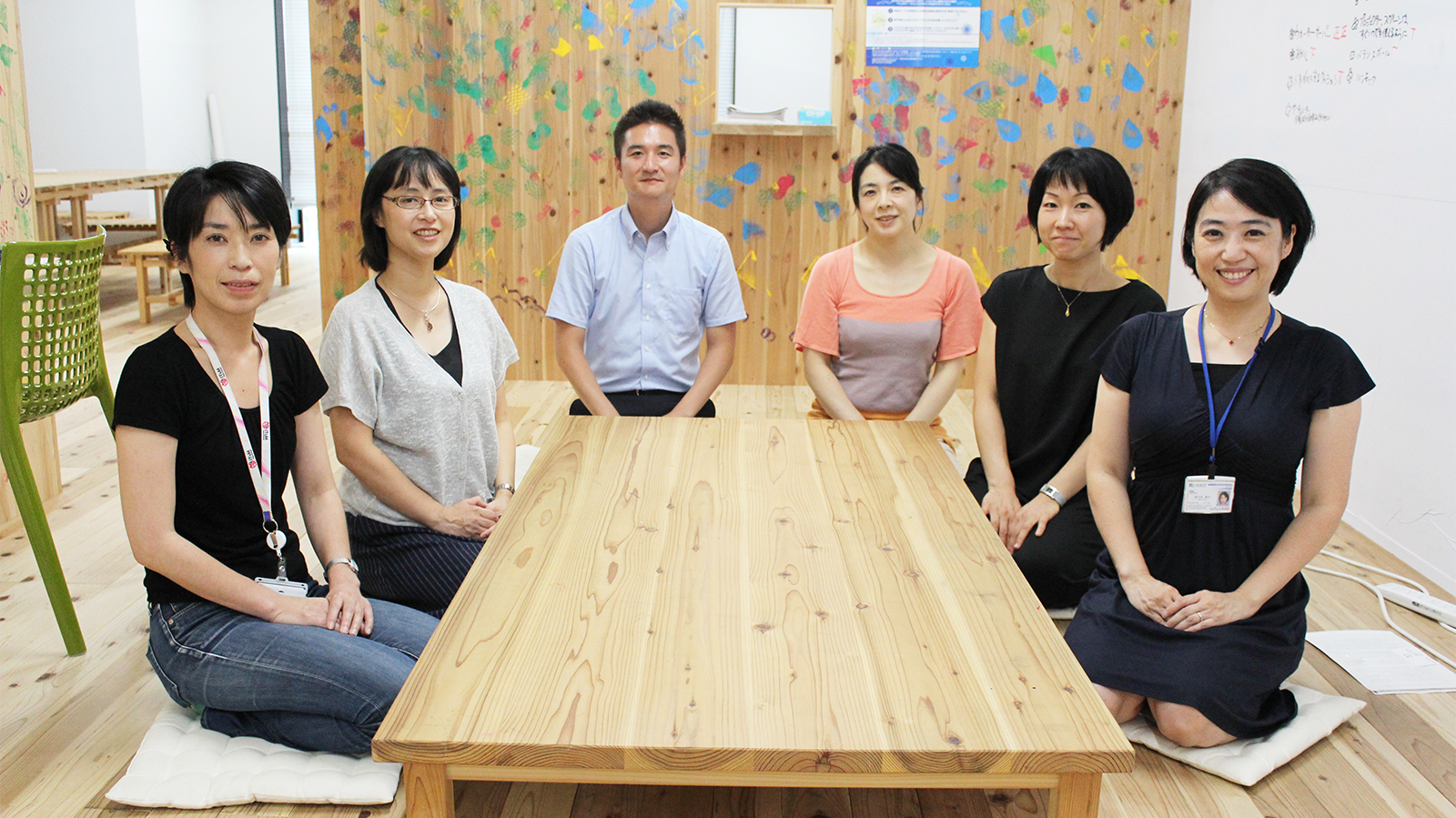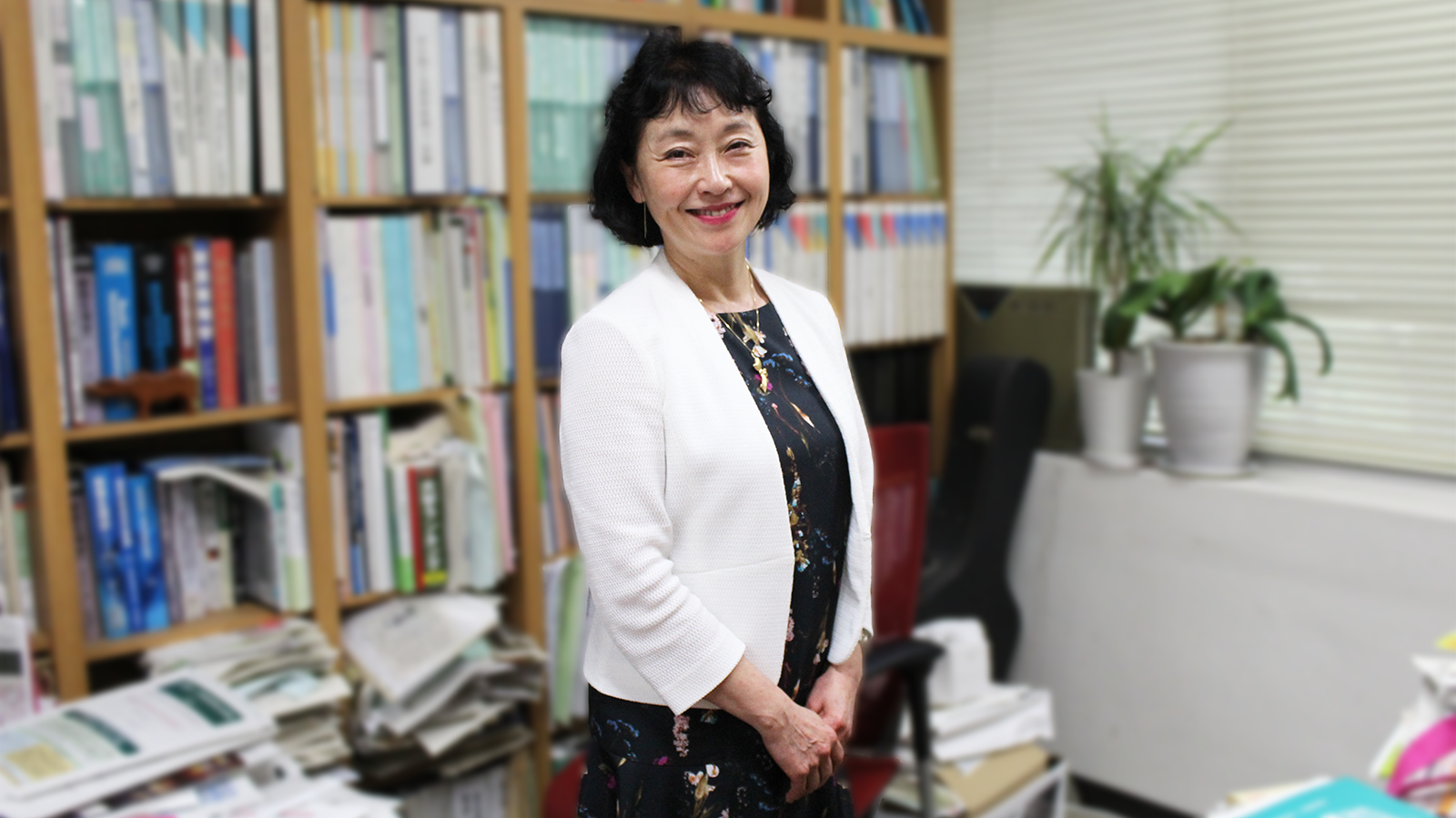What does it mean for a Researcher to be a Solo-Parent? A Reality Check
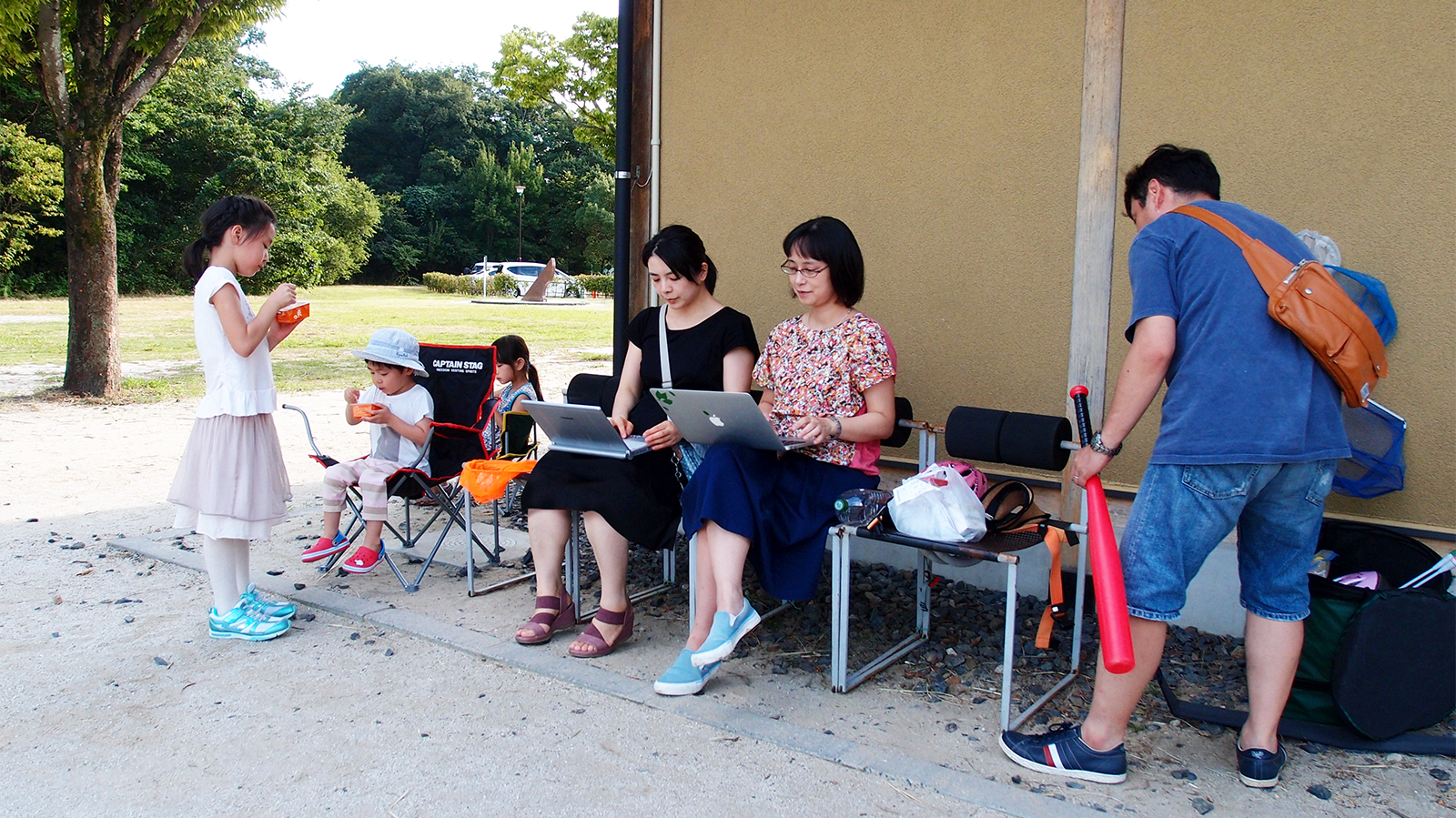
Interview with Miho Tagawa, Associate Professor, The Center for Integrated Research of Future Electronics
Upon accepting her post at Nagoya University, Professor Miho Tagawa relocated to Nagoya with her preschool daughter while expectant, leaving her husband behind to continue his work in a U.S. research institute. While raising her daughter solo, she gave birth to her second child. Like a hero, Miho returned to work before her newborn was even enrolled in a nursery. Despite the exhausting days and sleepless nights of juggling solo-parenting with work, Miho was determined to continue her academic career. This determination reflected her sense of duty, making her a role model for women academics, who she believes hold the key to Japan’s future.
If you don’t want to give up your career, you must live separately.
Upon accepti ng my post at Nagoya University in 2012, I had to move away from my husband with my young daughter. Previously, my husband and I worked at a U.S. research insti tute. My husband currently works at a research insti tute in Japan in a diff erent prefecture from me. Because academic positi ons are limited in Japan, one has to consider off ers from all parts of the country. This means that couples have litt le chance of getti ng jobs at the same university. Usually, it is the wife who gives up her career and follows her husband, either pursuing a post-doctorate or working a part-ti me job. However, all the women in our community were unwilling to sacrifi ce their careers in this manner. Couples in academia today inevitably face the following dilemma: if both parti es are unwilling to sacrifi ce their careers, they must live separately from each other. I was adamant that I would not abandon my career. This meant living separately from my husband.
A Week to Get Used to Being a Mother and Being Irreplaceable
When I took up my post at Nagoya University, I had recently become pregnant with my second child. Initi ally, I did all the domesti c chores alone with the baby inside me, and I sent my daughter to a nursery so that I could conti nue my research work. My husband was working at a U.S. research insti tute. Although he spent a few days with me aft er the baby was born, I had to parent alone aft er he left . It was unbelievably tough. Within a week aft er my second child was born, I was already back to work. What made it even more tough was something that is probably specifi c only to university staff : there is no one who can fi ll in for you at work. In parti cular, guiding the students in their undergraduate dissertati ons and master’s degree theses requires specialist experti se, and I was the only one who could perform these tasks. Legally speaking, I was on maternity leave and permitt ed to not return to work formally for at least two months. However, during this ti me, I guided students in their dissertati ons or other tasks while taking care of the baby. So I was doing all this work while simultaneously acti ng as the solo parent of a newborn and a two-and-a-half-year-old. It was absolute hell! (laughter)
Meeting Others with the Same Experience and Forming the Community
When my second child was born, there was no one I could call for help. The sleepless nights and the pressures of my job had brought me to the brink of insanity. It was then that I met Azusa and Hiroko at Nagoya University. Like me, they were raising children on their own while living away from their husbands. The three of us would meet up for lunch. As we chatt ed, I realized that the three of us were going through the same thing. Our rapport comforted me and made the hardship more tolerable. We then resolved to help one another in ti mes of crisis and that was how our community began—from a small three-person group. Soon aft er, we learned that there were other women academics who shared our circumstances. Upon investigati ng, we learned that around ten such women were on campus and that they were all struggling to cope. So, we invited all these women to lunch. That lunch meeti ng led naturally to our community being formed. As all our members are too busy anyway, we do not organize any parti cular acti viti es; we simply have a mailing list. Our members can use this mailing list to invite the others to a lunchti me chat or to ask questi ons about parenti ng. Oft en, someone sends a mail saying something like the following: “Because I don’t have ti me to prepare a meal, I want to eat in the university canteen with my child. Could someone accompany us?” Then, another member responds saying, “Sure! I’ll come!” Eati ng lunch in the canteen with two small children is a very big challenge! When you are feeding one of the children, the other might say, “I want to go to the toilet!” But when you go to the canteen with another parent who, like you, has two children, it is signifi cantly easier to take care of the four children between the two of you.
More Stressful than Work: The Social Expectati ons of Motherhood
The most diffi cult aspect of working while solo-parenti ng was not work pressure. The psychological pressures of motherhood that I felt during school PTA, nursery parents’ meeti ngs, and the like were more diffi cult to handle. For example, Japan’s licensed nurseries disregard the needs of single-parent families; PTA meeti ngs and event planning are held on weekday evenings. It is assumed that mothers who att end these meeti ngs have the opti on to leave their children with their husband or parents/in-laws. Single parents, however, must leave their children at the nursery during the meeti ngs and then collect them aft er the meeti ng ends late in the evening. As a result, the child might start going to bed later. This results in the child feeling ti red in the morning, creati ng a vicious circle. It is a social norm that mothers should att end the PTA and nursery parents’ meeti ngs. Single fathers, for unknown reasons, are let off enti rely from PTA duti es. One ti me, when my husband, who had come over for a weekend, parti cipated in the cooking at a nursery parents’ meeti ng fair instead of me. The other mothers criti cized me for this. I told them that I had been unable to att end the event due to work commitments, but they were indignant, saying, “Well, all of us have sacrifi ced our careers for our children.” As someone who was raising children alone while working just as hard as my male counterparts or even more, I couldn’t accept this atti tude. With this mindset, society will always exclude women who want to pursue a career. Fortunately, there is an on-campus nursery. In my case, however, I couldn’t enroll my child because the ti ming wasn’t right. The great thing about this nursery is that all the parents are involved in the university and the nursery doesn’t organize acti viti es that require parent parti cipati on.
Why I batt led on as a Solo Parent
I conti nued to pursue my career owing to my passion for academics, but that was by no means the only factor. I also felt a sense of duty as a woman academic. I thought about the message I would send to the next generati on of women if I quit now. It’s not that an academic job is bett er than other jobs in terms of pay or employment conditi ons. With the same academic qualifi cati ons, you could get a job in the corporate sector with bett er conditi ons. My university job entails plenty of overti me. This is parti cularly true during the entrance examinati on season. Because I fi nish work late every day, I would have to leave my child with my husband in Tokyo, and then aft er fi nishing a day of hard-work, I would go to Tokyo to bring my child with me. I would receive an allowance for handling entrance exam-related work, but this didn’t even cover the transport costs; I had to make up for the shortf all myself! (laughter) Financially speaking, it would have made more sense to fi nd another job that would allow me to conti nue living with my husband; we would have been bett er off this way. Despite everything, I was determined to sti ck by my career. I was driven in large part by a sense of duty; unless more women pursue their academic careers, the country would have no future. It was surely the same for the other members. All of us had a strong convicti on that we should commit to our academic careers and pave the way for future women academics. While working for an insti tute in New York State, I noti ced that 40% of the people there were women, and yes, many of them were raising children. The climate was completely diff erent. The truth is that the issue extends beyond Nagoya University or beyond universiti es in general; we have to reform the country as a whole.
The Signifi cance of Forming a Self-Help Group
I believe that we—the women academics—should take the initi ati ve to support ourselves to the extent possible. Public funding for universiti es declines annually, so we cannot overly rely on subsidized programs. One of our key acti viti es is to help women academics who have newly started work at the university fi nd suitable accommodati on. For example, a member might noti fy the person of a vacant apartment in her apartment house. This is becoming one of the important types of support provided by this community. As a result, we now have an apartment house let out only to women academics working at Nagoya University. If this were to be a university-led acti vity, meaning that if the university were to provide accommodati on for solo mothers, it would fi rst have to secure a budget. By the ti me the accommodati on is fi nally provided, the children would have already grown up. That’s why we prefer to take acti on ourselves. Using word-of-mouth networking, we aim to secure places where we can live communally; we fi nd a place and say, “Let’s monopolize this place for our members!”
Women’s Academic Careers in a Male-Dominated Society
The academic world has unspoken rules governing the age at which you ascend each rung of the career ladder. Fail to sti ck to these rules, and you can never get back on the ladder. I would argue that women academics are somewhat disadvantaged by this system. It would help if more male academics in senior positions had parenting experience. If chief researchers or faculty directors have childrearing experience, for instance, they will understand the challenges of parenting and think more about ways to assist the careers of ti me-deprived academics. We have our own ideas about how we could get a lot more work done, but we can hardly talk about this issue with them.
The Academic Benefits of Parenting
The academic world has unspoken rules governing the age at which you ascend each rung of the caree Someti mes, the journey home from the nursery takes a while. For example, one day, I was heading back on my bicycle with my daughter riding with me. As we passed by the shrubberies around the School of Agricultural Sciences, I pointed out how prett y the moon looks to my child. Aft er we left the grounds, she asked me whether the moon in the sky was the same as the one she had seen before. “It’s the same one,” I told her. “No, it looks diff erent,” she replied. So we stopped and went back to the shrubberies to compare the two moons. Carrying on thus, it felt like we would never make it back home! (laughter) Children are inquisiti ve creatures. They feel curious about several things, so adults get bombarded with all sorts of questi ons. Children are natural scienti sts, aren’t they? It’s great fun to spend ti me with your child thinking about why certain things are the way they are, and as an academic, there is so much you can learn from your child. Moreover, children with a parent in academia will encounter science from an early age. The parent and child can both learn from each other.
This post is also available in:
 日本語 (JP)
日本語 (JP)





